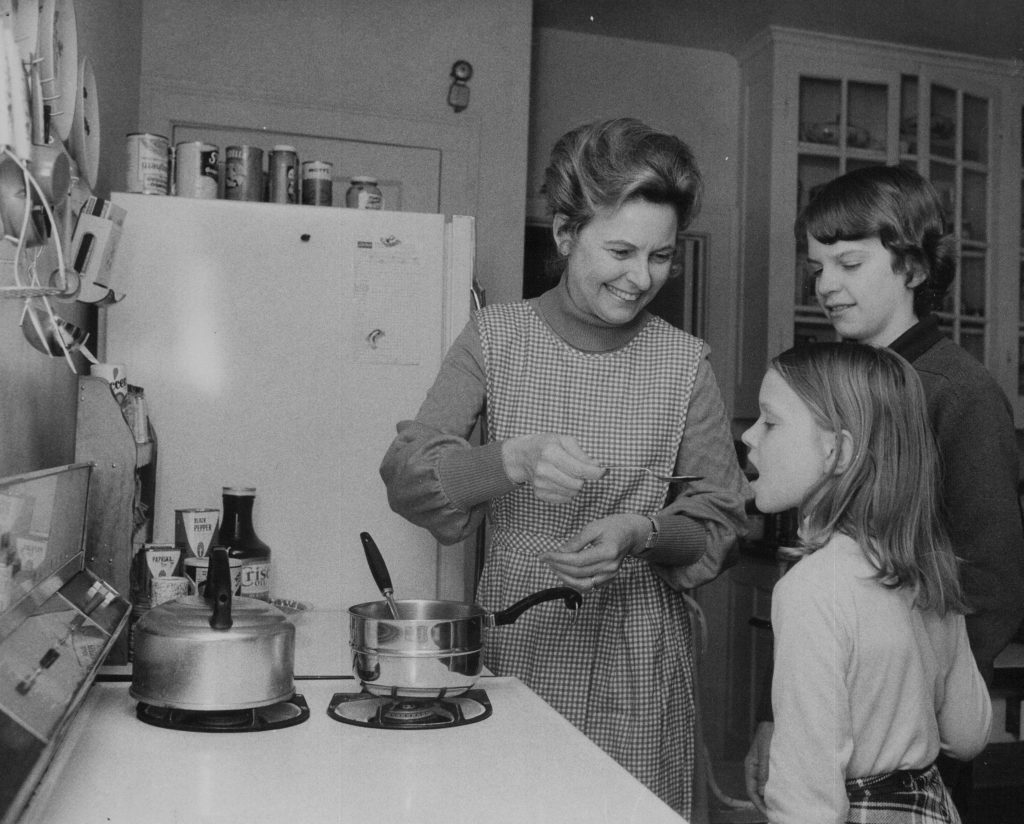The Ms. magazine from Episode Two not only promotes unisexuality, it endorses socialism within the home. Perfectly dividing the household chores emphasizes both a oneness of gender and a division of labor, which leaves the women with all the work.
The Phyllis Schlafly Report captures Phyllis’s interpretation of the first Ms. issue, “It is anti-family, anti-children, and pro-abortion.” The proposed “utopian marriage contract” and the “Shulman’s marriage agreement” demand “abortion in advance,” “sexual rights and freedoms,” and certain days for either parent to answer the baby’s cry. Phyllis dryly mused, “Presumably, if the baby cries for his mother on Tuesday night, he would be informed that the marriage contract prohibits her from answering.”
Clearly, this arrangement places the child at a disadvantage. It is essential for a child to grow up in a secure home. Both parents fulfill a necessary role. Traditionally, the man is provider and protector; the mother is caretaker and nurturer. Phyllis said, “They [women] can make marriage and motherhood their full-time career, or they can go into some other career, if they want. Or they can do both at the same time.”
Phyllis believed and promoted that women and men should be able to make their own choices. She quoted a Russian female journalist who wrote, “The years given over to a ‘male’ occupation can rob her of the main thing: her happiness as a woman, the joy of motherhood.” She was living the “equality” promoted by the feminists and realized it hindered women’s freedom rather than “liberating” women.
America was founded upon Christian principles that accentuate the complementary differences between masculinity and femininity. All men and women are to be treated with dignity and children are to be nurtured in a loving home, not informed of absurd contracts or deprived of either parent.
Although Phyllis Schlafly never told “all women” to do anything, she was practical enough to acknowledge that homemaking and caring for children is most fulfilling to many women. Allowing women the choice to stay home isn’t oppressing anyone, but feminists refuse to accept that truth. O’Reilly pined, “I had never realized how seductive the role of master is.” Obviously, feminism isn’t really about fighting oppression. It is about oppressing men, children, and traditional women like Phyllis Schlafly.

